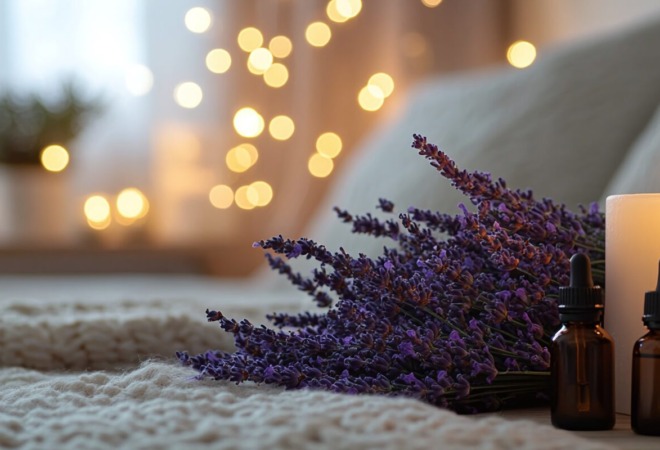Insomnia is a condition where a person experiences poor quality or inadequate sleep, causing day-time impairment, despite the opportunity for sleep. We spoke to Anitha Vivekanandan, Insomnia Specialist and Senior Patient Navigator at Auckland Sleep to find out a little more about the condition.
Insomnia support
Understanding Insomnia: Causes, Types, and Associated Disorders
According to the ICSD-3 definition, insomnia is present when all three of the following are met:
- Difficulty initiating sleep, difficulty maintaining sleep, or waking up too early
- The above difficulties occur, despite adequate opportunity for sleep
- Impaired sleep produces deficits in day-time functioning
When a person experiences difficulty in falling asleep, it is categorised as ‘short-term insomnia’ if it lasts for less than three months. However, if the symptoms persist for at least three months and are present at least three times a week, it is classified as ‘chronic insomnia’. It is common for people to have trouble falling asleep during stressful events, but this may persist even after the stressor is resolved. As time passes, the difficulty in falling asleep may transform into middle-of-the-night or early morning awakenings. In some cases, individuals may experience a combination of all of these issues.
The type of sleep issue may be associated with specific disorders. Difficulty in falling asleep may be associated with anxiety, whereas someone with snoring or sleep apnea may typically fall asleep very quickly, but have multiple awakenings at night. The day-time complaints usually associated with insomnia include: fatigue, poor attention, mood disturbances, day-time sleepiness and being accident-prone. Possible causes of insomnia include: stress, anxiety, depression, medical conditions, certain medications, caffeine, alcohol, nicotine and poor sleep habits.
In our practice, we frequently encounter several conditions, including sleep-disordered breathing such as snoring and obstructive sleep apnea (referred to as COMISA – ‘co-morbid insomnia and sleep apnea’), mood disorders like anxiety and depression, chronic fatigue syndrome, medical conditions like reflux, asthma, and menopause, and the side effects of certain medications like steroids and anti-depressants.
Insomnia support
Here are some helpful tips for managing insomnia:
We believe that a comfortable and supportive mattress is the best way to help stop snoring. The ideal bed is different for everyone; however, we have put together some tips to help select the best mattress for your needs.
Maintaining good sleep hygiene is important and can be achieved by following some simple practices, such as having a consistent bed and wake-up time, regardless of whether it’s a weekday or weekend. Developing a regular bed-time routine, which may involve activities like taking a warm shower, listening to relaxing music or meditation, and having a glass of warm milk, can also be helpful. Additionally, limiting fluid intake near bed-time and ensuring adequate hydration during the day can reduce the need to wake-up at night to use the toilet. The timing of your last meal can have an impact on your sleep. You do not want to be too hungry, or too full at bed-time. Find your ‘sweet spot’, which is usually at least 2-3 hours before bed-time. A light snack at bed-time may help some sleep better.
To improve your sleep, it is important to establish a healthy day-time routine. Here are some useful tips: Firstly, ensure that you get some exposure to morning sunlight or light earlier in the day to regulate your body’s natural rhythm. While exercise is beneficial, it is advisable to avoid strenuous activities such as HIIT or F45 before bed-time. It is best to work out in the morning or before your evening meal. If you need to take a nap during the day, limit it to 20-30 minutes in the early afternoon. Additionally, be mindful of your alcohol, caffeine, and nicotine intake as they can impact the quality of your sleep. Avoid consuming them for at least four hours before going to bed. If you plan to quit abruptly, it is advisable to seek medical advice to avoid withdrawal symptoms. Finally, remember that although alcohol may help you fall asleep faster, it can negatively affect the quality of your sleep.
If you find yourself struggling to sleep due to worries that won’t go away, incorporating journaling into your daily routine can be helpful. Take about 15 minutes each day to write down your worries and brainstorm possible solutions for each one. This can be especially useful for dealing with intrusive thoughts that may arise at night. With a record of solutions to refer to, you may find it easier to calm your mind and get some rest.
Achieving a peaceful and restful sleep is essential for your well-being, and your bedroom plays a crucial role in this. To improve the quality of your sleep, it’s advisable to use your bedroom solely for rest and relaxation. It’s best to avoid studying, watching TV, or taking phone calls in bed as this can confuse your mind and make it difficult to sleep.
If you share your bed with a partner or pet and their presence is disrupting your sleep, it’s important to discuss the situation with them. You could consider asking them to sleep elsewhere while you work on improving your own sleep habits. Alternatively, you could work together to address any issues, such as snoring.
Creating a comfortable sleep environment is vital. Ensure that your bedroom is dark, quiet, and at a comfortable temperature. Investing in blackout curtains, and a reliable temperature control source can be helpful.
It’s crucial not to overlook the importance of your mattress, pillows and bedding. Do your research and select the best options for you, taking into account any physical issues that may affect your sleep. Remember, you’ll be spending about a third of your life on your mattress, so choose wisely. As a starting point, try the Sealy Bed Selector tool to ensure your sleep surface is providing the comfort and support you need.
ABOUT ANITHA
Anitha Vivekanandan is the Insomnia Specialist and Senior Patient Navigator at Auckland Sleep. With an impressive track record of over two decades in the medical field, she has dedicated her expertise to assisting adults and teenagers who suffer from chronic insomnia. Anitha’s commitment to her patients goes beyond her role as a sleep specialist, she is an esteemed member of the Malaysian Society of Otorhinolaryngologists – Head and Neck Surgeons and the Asean Sleep Surgical Society.
Discover more – https://aucklandsleep.co.nz/




